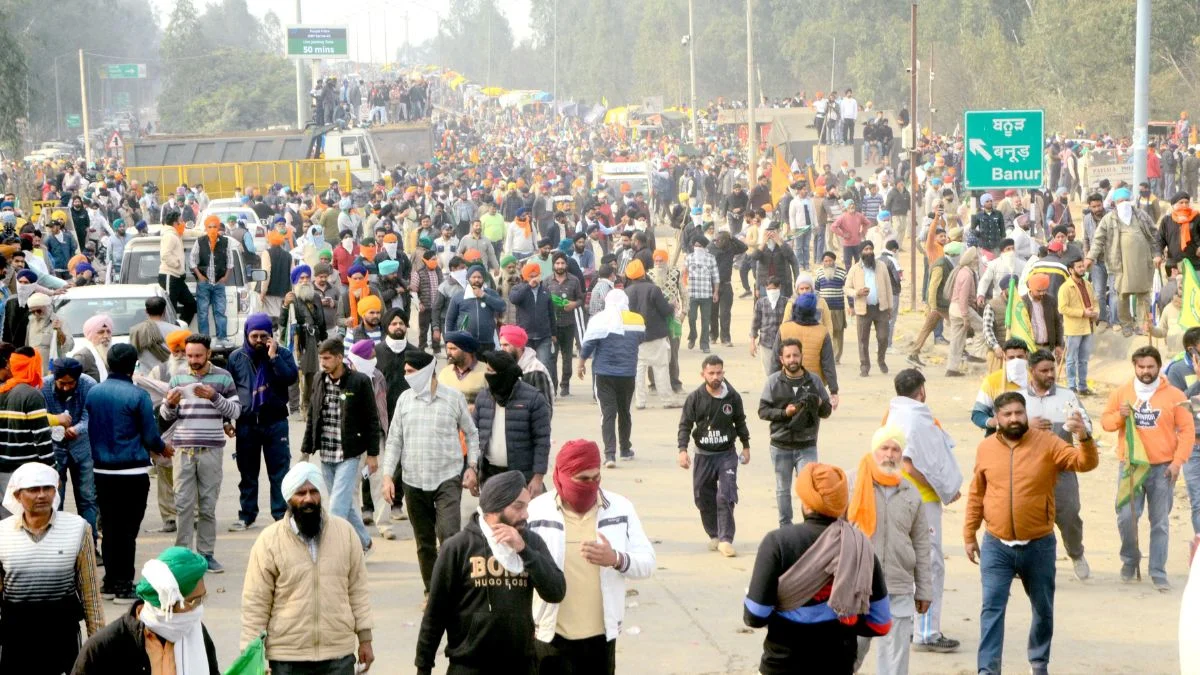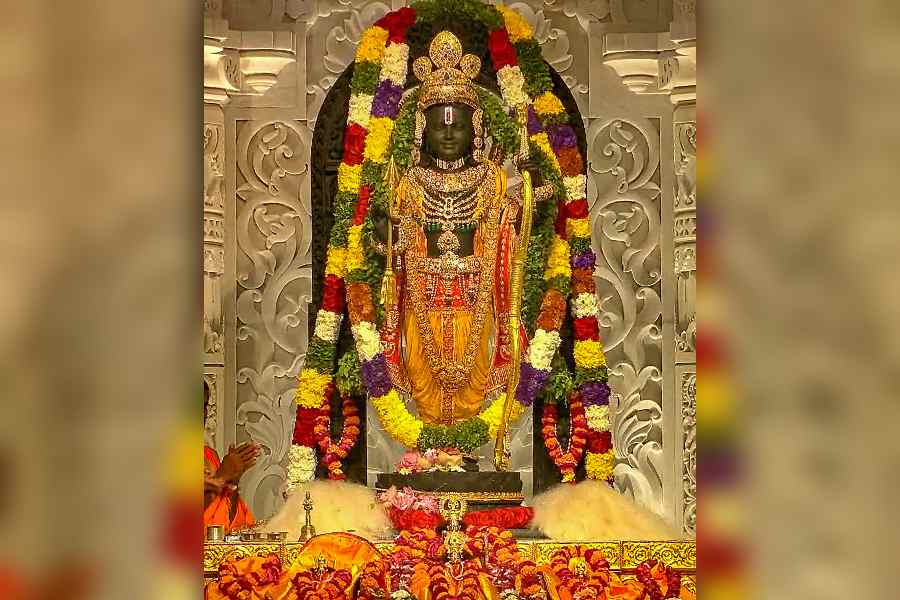The ongoing farmers’ protests, now entering their third day, have garnered significant attention as the Bharatiya Kisan Union-Ugrahan (BKU-Ugrahan) plans to intensify their demonstrations by blocking trains in Punjab. This move comes amidst preparations for a crucial meeting between three Union ministers and farmer leaders scheduled for Thursday evening.
BKU (Ugrahan) general secretary Sukhdev Singh Kokri Kalan announced plans for a ‘rail roko’ protest, expressing solidarity with the cause and emphasizing the need for nationwide support. With approximately ten protest sites identified for the blockade, including key locations along major rail lines, the protest is poised to disrupt transportation and draw attention to the farmers’ demands.
Simultaneously, the forthcoming meeting between Union ministers Arjun Munda, Piyush Goyal, Nityanand Rai, and farmer representatives signifies a continued effort to address the issues raised by protesters. Despite previous inconclusive discussions, both sides remain committed to dialogue, reflecting a shared desire to resolve the impasse peacefully.
Amidst these developments, various farm unions have announced plans for additional protests, including demonstrations at toll plazas and solidarity rallies. The coordinated actions underscore the unity and determination of the farming community in pursuing their demands.
The core demands of the protesters, including a legislative guarantee of minimum support prices (MSP) for crops, reflect longstanding grievances and aspirations for agricultural reform. These demands are not new, but they have gained renewed momentum and urgency amidst the current protests.
The issue of MSP has been a contentious one, with farmers advocating for its implementation based on the recommendations of the Swaminathan Commission. The Commission’s suggestion that MSP should be at least 50% more than the weighted average cost of production has been a focal point of debate and contention.
Historically, successive governments, including the current Modi-led administration, have grappled with the question of MSP and its implications for market dynamics. While the Modi government has increased MSP for various crops over the years, it has stopped short of fully implementing the Commission’s recommendations, citing concerns about market distortion.
The government’s approach to MSP reflects a delicate balancing act between supporting farmers’ incomes and maintaining market stability. Critics argue that the government’s reluctance to fully embrace the Commission’s recommendations has contributed to the persistence of agrarian distress and farmer discontent.
In light of these developments, it is essential to consider the broader context of agricultural policy and the challenges facing the farming community. The farmers’ protests represent not only a demand for economic justice but also a broader assertion of farmers’ rights and dignity.
As the dialogue between farmers and the government continues, there is a need for constructive engagement and genuine efforts to address the root causes of agrarian distress. The farmers’ demands go beyond mere economic considerations; they encompass issues of social justice, environmental sustainability, and rural livelihoods.
In conclusion, the farmers’ protests underscore the deep-seated grievances and aspirations of the farming community. By amplifying their voices and mobilizing public support, farmers are seeking to hold the government accountable and ensure meaningful reforms that safeguard their interests. The path forward requires sincere dialogue, political will, and a commitment to addressing the structural inequalities that underpin the agricultural sector. Only then can we achieve a more equitable and sustainable future for Indian agriculture.
Discover more from The Doon Mozaic
Subscribe to get the latest posts sent to your email.



